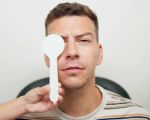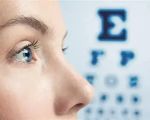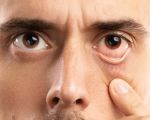- why-asking-the-right-questions-matters-at-your-eye-doctor-visit
- questions-to-ask-during-your-eye-doctor-appointment-for-vision-health
- questions-about-glasses-contacts-and-daily-vision-needs
- what-to-ask-about-eye-disease-prevention-and-family-history
- real-patient-experiences-how-good-questions-led-to-better-care
- find-the-right-eye-expert-for-your-needs
1. Why Asking the Right Questions Matters at Your Eye Doctor Visit
When it comes to your vision, no question is too small. Knowing the right questions to ask during your eye doctor appointment can make a big difference in how well you understand your eye health—and what steps you should take next. From choosing the right lenses to detecting early signs of disease, a good conversation with your eye doctor is just as important as the eye exam itself.
Whether it’s your first checkup or your tenth, clear communication can help prevent discomfort, correct long-ignored issues, or even catch warning signs early. A prepared patient is a healthier patient—and one who walks out with answers, not confusion.
2. Questions to Ask During Your Eye Doctor Appointment for Vision Health
2.1 What’s My Current Prescription and Has It Changed?
Vision can change subtly over time. Ask your doctor to walk you through your new prescription—especially if you're unsure whether your headaches or blurry vision are linked. This helps ensure your lenses match your current visual needs.
2.2 Are My Symptoms Normal or Cause for Concern?
If you’ve noticed increased floaters, dry eyes, night vision issues, or sudden sensitivity to light, speak up. Your doctor can tell you whether it’s a common issue or something that requires closer attention.
2.3 How Often Should I Get My Eyes Checked?
The answer depends on your age, medical history, and risk factors. Don’t settle for a one-size-fits-all answer—ask for a timeline that’s right for you, especially if you have diabetes or wear contact lenses regularly.
3. Questions About Glasses, Contacts, and Daily Vision Needs
3.1 What Type of Lenses Work Best for My Lifestyle?
Your vision correction isn’t just about numbers—it’s about how you live. If you’re always in front of a screen, ask about blue light lenses. If you’re outdoors often, explore polarized or transition lenses. The more your eye doctor knows about your lifestyle, the better the recommendations.
3.2 Are My Contacts Still Right for Me?
If your contacts feel dry, slide around, or limit your wear time, don’t ignore it. Ask about switching brands or exploring daily lenses. A surprising number of people stick with uncomfortable contacts simply because they didn’t ask.
3.3 Do I Need Reading Glasses or Progressive Lenses?
For adults over 40, near vision can decline—a condition called presbyopia. Discuss options with your doctor instead of guessing. Progressive lenses or bifocals might be a better solution than juggling multiple glasses.
4. What to Ask About Eye Disease Prevention and Family History
4.1 Am I at Risk for Any Hereditary Eye Conditions?
Glaucoma, macular degeneration, and even certain types of cataracts can run in families. Let your doctor know about your family history and ask what proactive steps you can take. Early detection is key.
4.2 What Are the Warning Signs of Eye Disease?
Sometimes symptoms are subtle or easily ignored—gradual vision loss, halos around lights, or poor night vision. Knowing what to watch for empowers you to seek help early and protect your vision long-term.
4.3 Should I Be Taking Any Supplements or Adjusting My Diet?
Your eyes rely on specific nutrients, including lutein, omega-3s, and vitamins A, C, and E. Ask if adding supplements or adjusting your diet could help strengthen your eye health—especially if you're at risk for age-related conditions.
5. Real Patient Experiences: How Good Questions Led to Better Care
5.1 From Blurry Vision to a Brain Tumor Diagnosis
A woman in her early 30s visited her eye doctor for blurry vision. She asked, “Could this be neurological?” That question led to further testing, eventually revealing a small but treatable brain tumor. Her story went viral and reminded others of the power of speaking up during appointments.
5.2 Switching to Lenses That Changed Everything
James, a photographer in Chicago, had been struggling with color accuracy. At a visit with Eye Docs, he asked about lenses that might improve contrast. The optometrist recommended lenses with improved color fidelity—and he now calls it a “game-changer” for both work and daily life.
6. Find the Right Eye Expert for Your Needs
Knowing the questions to ask during your eye doctor appointment empowers you to take control of your health. Whether you’re preparing for your first pair of glasses or managing complex vision issues, the right questions open the door to better care and better outcomes.
At Eye Docs, we help you connect with trusted professionals who not only provide top-tier exams but also welcome your curiosity. You deserve answers—and a care plan built around your specific vision journey.
Your next eye exam isn’t just routine—it’s an opportunity. Go in informed. Leave with clarity.








